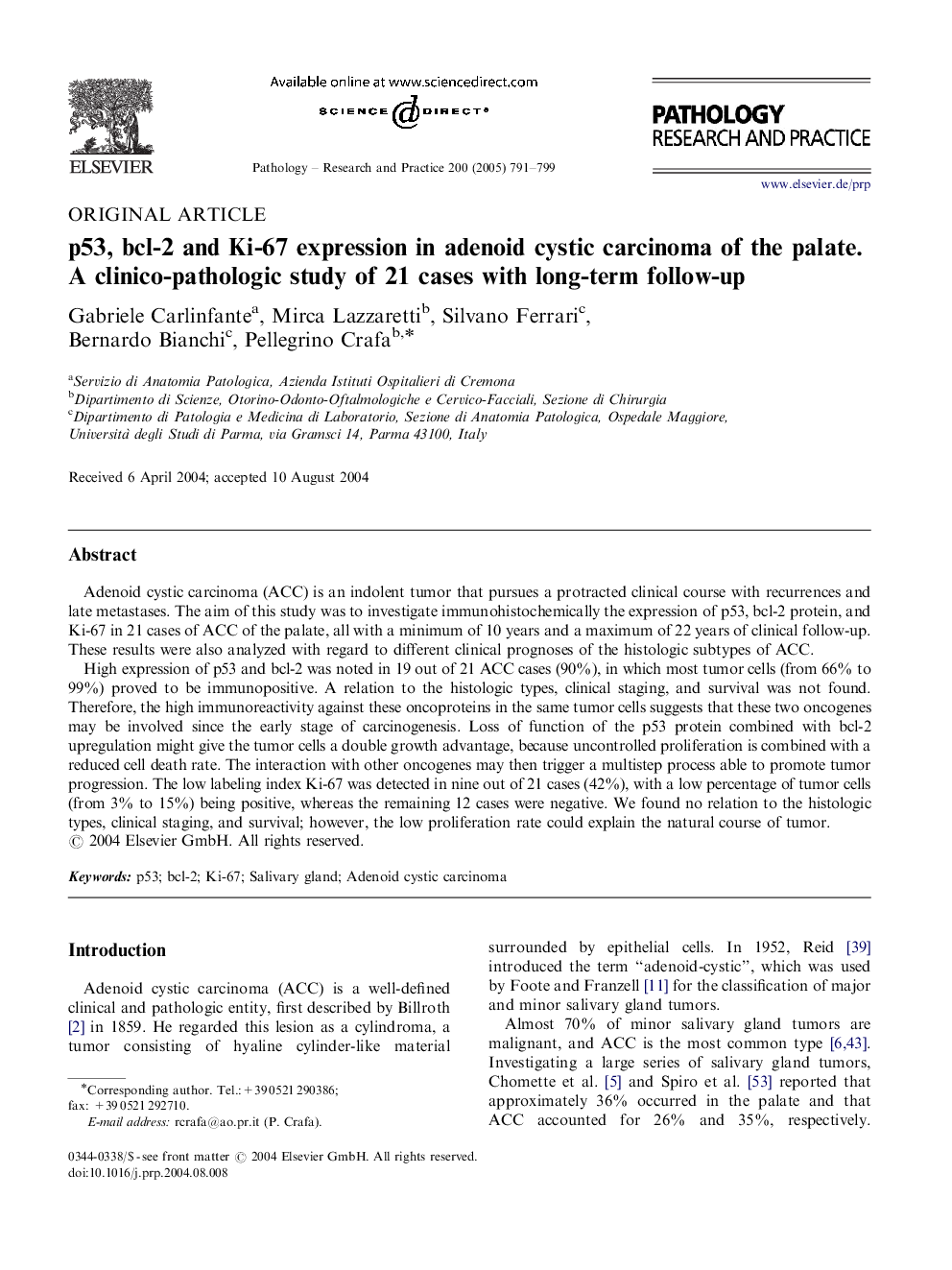| Article ID | Journal | Published Year | Pages | File Type |
|---|---|---|---|---|
| 9910913 | Pathology - Research and Practice | 2005 | 9 Pages |
Abstract
High expression of p53 and bcl-2 was noted in 19 out of 21 ACC cases (90%), in which most tumor cells (from 66% to 99%) proved to be immunopositive. A relation to the histologic types, clinical staging, and survival was not found. Therefore, the high immunoreactivity against these oncoproteins in the same tumor cells suggests that these two oncogenes may be involved since the early stage of carcinogenesis. Loss of function of the p53 protein combined with bcl-2 upregulation might give the tumor cells a double growth advantage, because uncontrolled proliferation is combined with a reduced cell death rate. The interaction with other oncogenes may then trigger a multistep process able to promote tumor progression. The low labeling index Ki-67 was detected in nine out of 21 cases (42%), with a low percentage of tumor cells (from 3% to 15%) being positive, whereas the remaining 12 cases were negative. We found no relation to the histologic types, clinical staging, and survival; however, the low proliferation rate could explain the natural course of tumor.
Related Topics
Life Sciences
Biochemistry, Genetics and Molecular Biology
Cancer Research
Authors
Gabriele Carlinfante, Mirca Lazzaretti, Silvano Ferrari, Bernardo Bianchi, Pellegrino Crafa,
